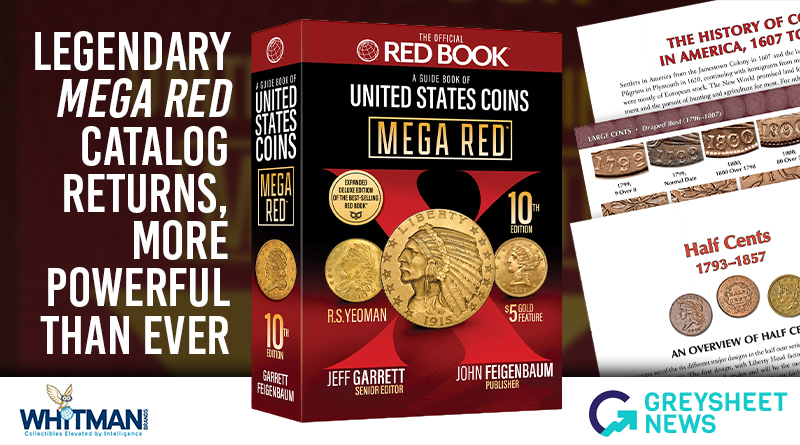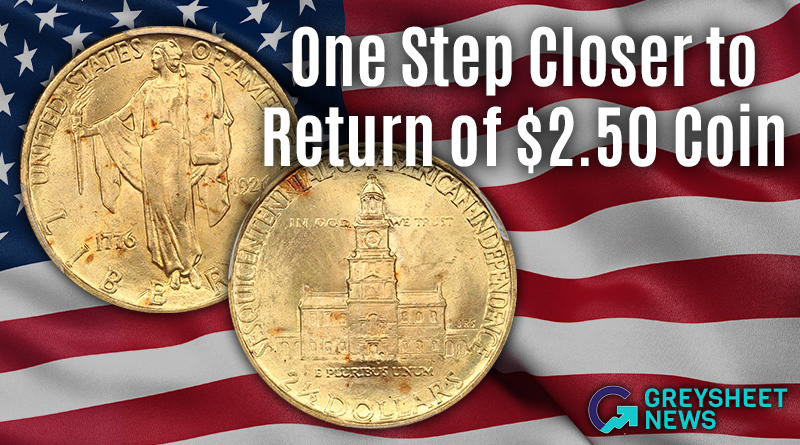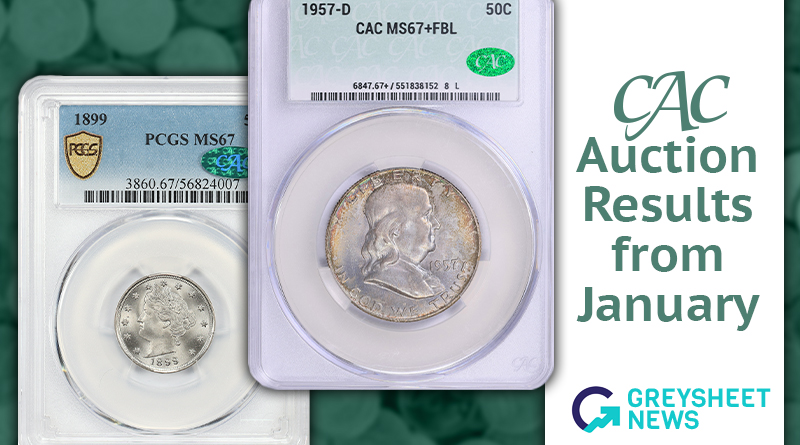Greysheet & CPG® PRICE GUIDE
- U.S. Coins /
- Dollars /
-
Bust Dollars, Proof & Special Strikes (1800–1804) Values
About This Series
The earliest numismatic-quality issue among these early American dollars is the 1794 Silver Plug special strike that Professional Coin Grading Service (PCGS) graded as an SP66. Many numismatic scholars believe this coin, with exceptional strike detail and superb surfaces, may be the very first dollar coin ever struck in the United States.
A 1795 Bust dollar special strike became the next-known numismatic issue among these early American dollars, though the first true proof Bust dollars are not officially recorded until 1801. Mintages for the 1801, 1802, and 1803 proof Bust dollars vary from about 5 to 10 pieces per issue, and prices hover around the middle six-figures to more than $1 million depending on the date and condition.
The 1804 Draped Bust dollar is not only the long-heralded 'King of American Coins,' but it is also arguably the most famous early American proof coin. The 15 known proof dollars bearing the 1804 date are categorized into three classes. The Class I specimens, struck around 1834 or 1835 for inclusion in special proof sets presented to foreign heads of state, are generally the most valuable. The finest-known Class I specimen, graded PR68 by PCGS, sold for $4,140,000 in 1999. A single Class II specimen is known and resides in the Smithsonian Collection. The Class III specimens struck sometime around the late 1850s has six survivors and, like their Class I counterparts, are seven-figure coins.
Catalog Detail
Legal Disclaimer
The prices listed in our database are intended to be used as an indication only. Users are strongly encouraged to seek multiple sources of pricing before making a final determination of value. CDN Publishing is not responsible for typographical or database-related errors. Your use of this site indicates full acceptance of these terms.


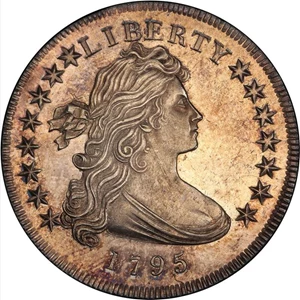
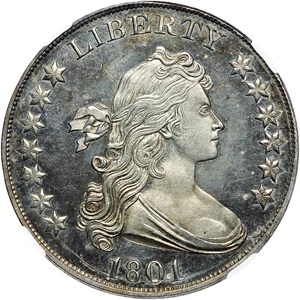



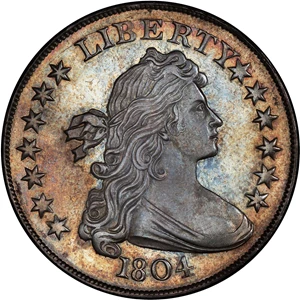

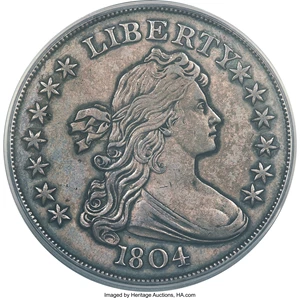




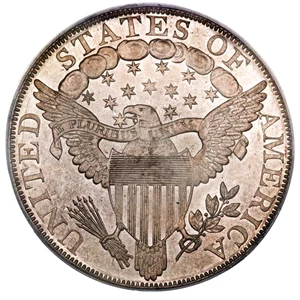
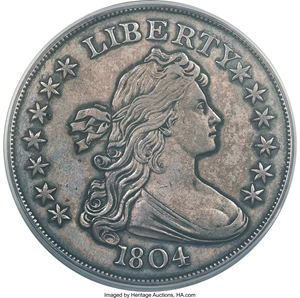


| Bust Dollars, Proof & Special Strikes (1800–1804) | Value Range | Favorite | |||
|---|---|---|---|---|---|
| Bust Dollars, Proof & Special Strikes (1800–1804) | Value Range | ||||
|
$225,000
-
$1,320,000
$225,000 - $1,320,000
|
||||
|
$780,000
-
$936,000
$780,000 - $936,000
|
||||
|
$780,000
-
$936,000
$780,000 - $936,000
|
||||
|
$1,000,000
-
$1,800,000
$1,000,000 - $1,800,000
|
||||
|
$1,100,000
-
$1,980,000
$1,100,000 - $1,980,000
|
||||
|
$450,000
-
$1,020,000
$450,000 - $1,020,000
|
||||
|
$1,000,000
-
$1,200,000
$1,000,000 - $1,200,000
|
||||
|
$225,000
-
$1,320,000
$225,000 - $1,320,000
|
||||
|
$600,000
-
$1,584,000
$600,000 - $1,584,000
|
||||
|
$4,250,000
-
$9,000,000
$4,250,000 - $9,000,000
|
||||
|
-
|
||||
|
$2,750,000
-
$6,000,000
$2,750,000 - $6,000,000
|
||||
From the Greysheet Marketplace
Auction Ends: 2/25/2026
Auction Ends: 2/25/2026
Auction Ends: 2/25/2026
Auction Ends: 2/25/2026
Auction Ends: 2/25/2026
Auction Ends: 2/25/2026
Auction Ends: 2/25/2026
Auction Ends: 2/25/2026
Auction Ends: 2/25/2026
Auction Ends: 2/25/2026
Related Stories (powered by Greysheet News)
View all news
Greysheet Catalog Details
The earliest numismatic-quality issue among these early American dollars is the 1794 Silver Plug special strike that Professional Coin Grading Service (PCGS) graded as an SP66. Many numismatic scholars believe this coin, with exceptional strike detail and superb surfaces, may be the very first dollar coin ever struck in the United States.
A 1795 Bust dollar special strike became the next-known numismatic issue among these early American dollars, though the first true proof Bust dollars are not officially recorded until 1801. Mintages for the 1801, 1802, and 1803 proof Bust dollars vary from about 5 to 10 pieces per issue, and prices hover around the middle six-figures to more than $1 million depending on the date and condition.
The 1804 Draped Bust dollar is not only the long-heralded 'King of American Coins,' but it is also arguably the most famous early American proof coin. The 15 known proof dollars bearing the 1804 date are categorized into three classes. The Class I specimens, struck around 1834 or 1835 for inclusion in special proof sets presented to foreign heads of state, are generally the most valuable. The finest-known Class I specimen, graded PR68 by PCGS, sold for $4,140,000 in 1999. A single Class II specimen is known and resides in the Smithsonian Collection. The Class III specimens struck sometime around the late 1850s has six survivors and, like their Class I counterparts, are seven-figure coins.
Catalog Detail
Legal Disclaimer
The prices listed in our database are intended to be used as an indication only. Users are strongly encouraged to seek multiple sources of pricing before making a final determination of value. CDN Publishing is not responsible for typographical or database-related errors. Your use of this site indicates full acceptance of these terms.










 Loading more ...
Loading more ...